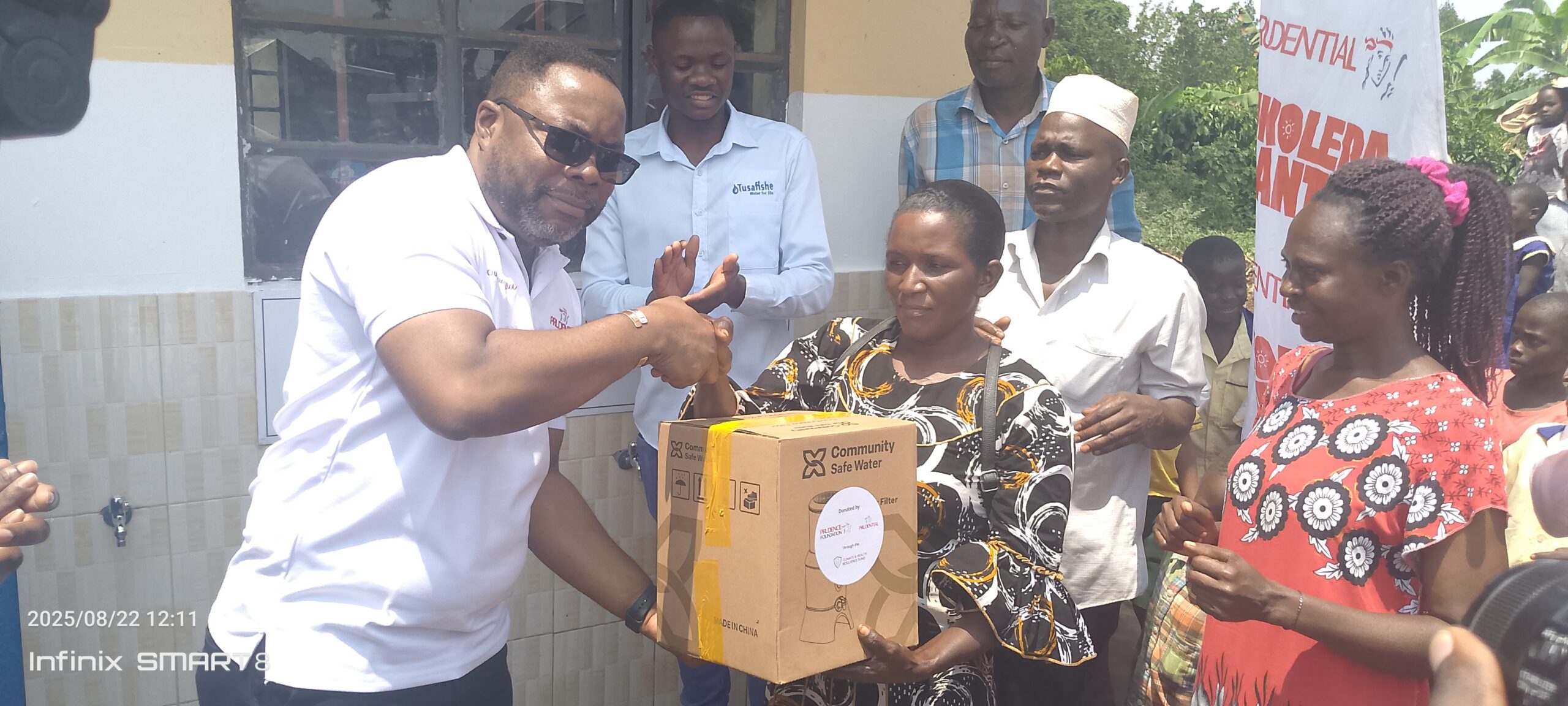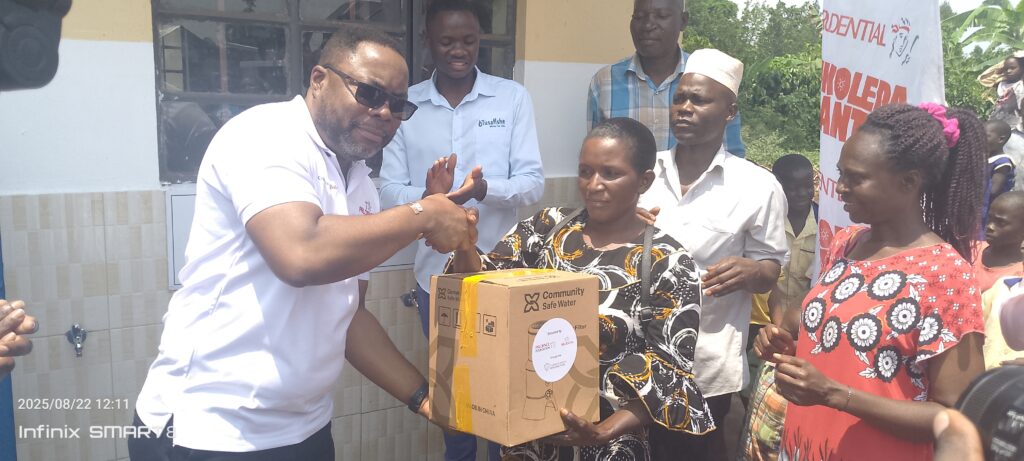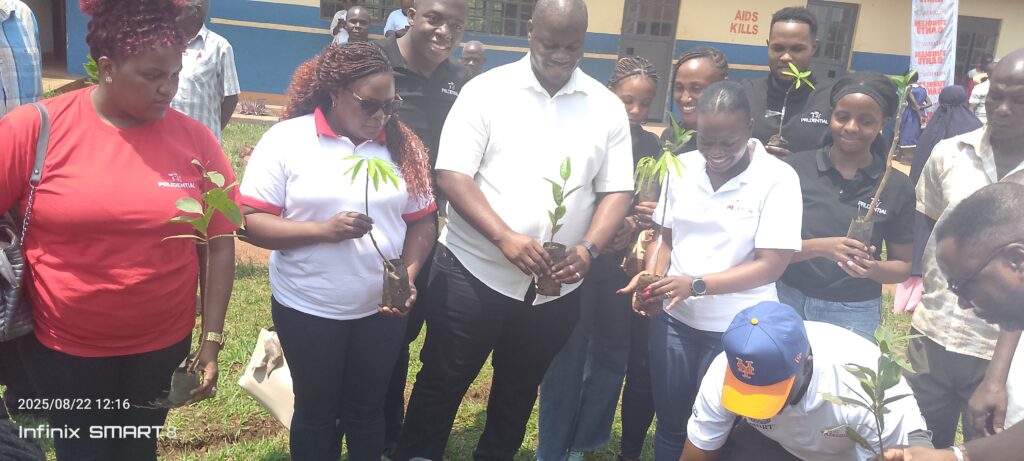
 Ssebo FM
Ssebo FM

 Ssebo FM
Ssebo FM
22 August 2025, 13:32

By Ali lukomo
Prudential Uganda, in partnership with the social enterprise Tusafishe, today announced the successful completion of the Prudential Climate and Health Resilience Fund, an eight-month initiative delivering sustainable, safe drinking water and environmental education to communities across Western and Eastern Uganda.
The fund, established by the Prudence Foundation, Prudential’s community investment arm, is designed to help markets adapt to the impacts of climate change on health. In Uganda, the project, implemented by Tusafishe Limited, involved the installation of 71 institutional water purification systems and 40 domestic filters, providing a daily supply of clean water in schools and households that previously had none. The systems are capable of producing thousands of litres each day, even in areas without electricity, making them ideal for remote locations.
Research shows a clear link between water insecurity and educational setbacks for children. A 2017 study published in Global Mental Health found that as water insecurity increases, children in rural Uganda are more likely to miss school, with even a small increase in water insecurity correlating to an additional 0.30 missed school days per child in a single week. Over time, these small increments translate into significant lost learning opportunities, highlighting the direct impact of access to safe water on a child’s education.
During the project’s conclusion, marked by a handover ceremony in Kamuli, Tetteh Ayitevie, CEO of Prudential Uganda, emphasised the transformative impact of clean water. “Without clean water, everything else is harder. A sick child cannot learn properly,” Ayitevie stated. This is particularly critical in Uganda, where up to 70% of all diseases treated are directly linked to a lack of clean water or poor sanitation and hygiene practices.
The project has directly benefited 119,562 individuals across 71 schools in the districts of Fort Portal, Kyenjojo, Kyegegwa, Kamuli, Mbale, and Sironko.
“When we launched the Prudential Climate and Health Resilience Project, we had three clear goals,” Ayitevie added. “Our purpose was to protect children and their communities from waterborne diseases, promote climate resilience through tree planting and environmental education, and invest in sustainable solutions that protect health and our planet for generations to come. Seeing the impact of this work today is one of our proudest moments at Prudential Uganda.”
According to UNICEF, nearly 38% of Ugandans still lack access to safe drinking water, a challenge that is most severe in rural and hard-to-reach areas. Many schools in these communities rely on unprotected springs, streams, or boreholes that often run dry or are contaminated, resulting in high rates of waterborne diseases and lost school time.
Henry Othieno, CEO of Tusafishe, the project’s implementing partner, praised the collaboration. “Our expertise in water purification, combined with Prudential’s commitment to community, has allowed us to deliver systems that are not only effective but also sustainable,” Othieno said. “Reaching some of these communities was no small task. Some schools are in locations where even transporting materials was challenging. But our team believes every child, no matter where they live, deserves safe water.”
The project also conducted training sessions in all 71 schools, reaching students and 537 community members through Water and Environment Clubs, equipping them with skills to maintain their water systems and promote climate resilience. Additionally, over 3,000 moringa and fruit trees have been planted to improve local nutrition, restore forest cover, and combat climate change.
Mr. Mugalula Peter Andrew, Communications Officer for Prudential Uganda, added that the initiative is expected to encourage greater school enrolment and positively impact communities in the near future.
Speaking to Radio One, one of the teachers praised Prudential and its partners for their generous efforts and urged the community to use the water responsibly.
